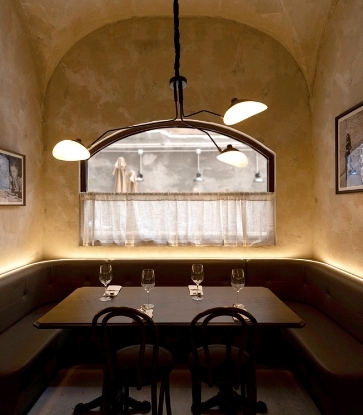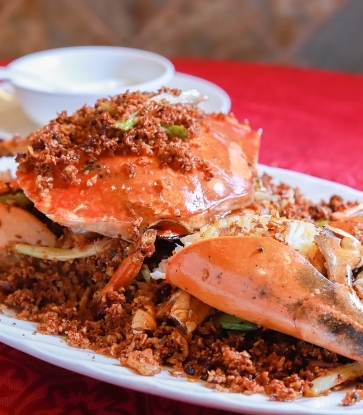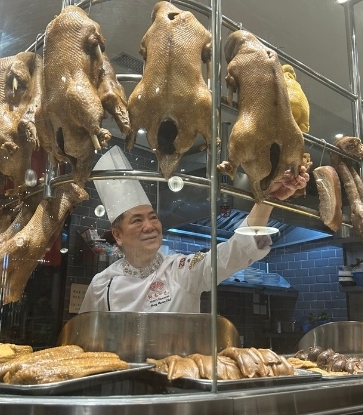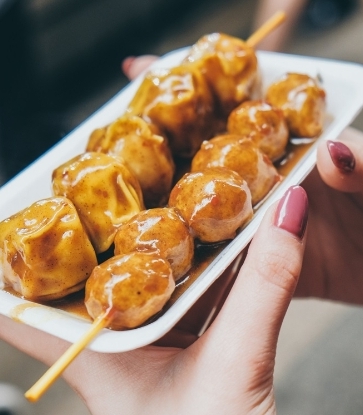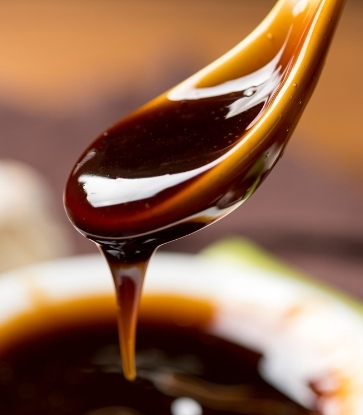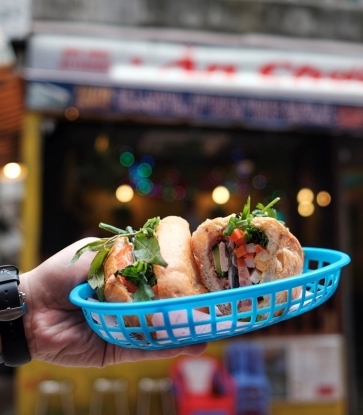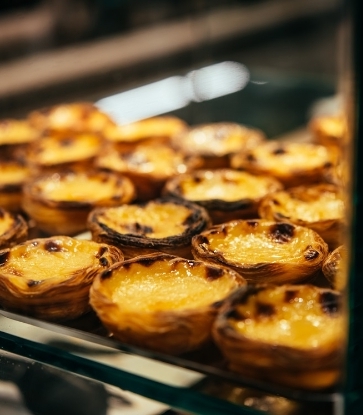A constant battle for improvement, in pursuit of perfection - this is Chan Shu Kit’s life mission. He started Lei Garden at the age of 38, some four decades ago. It is now a brand that every chef in Asia has heard of when it comes to Chinese cuisine.
When he first started the brand, Chan himself underwent three long years of training in the kitchen. Once he has gotten a firm grasp on his culinary skills, he used logical reasoning to impart his experiences to others.
He says: “I was a science student. When I first entered the kitchen, there was no one to teach me. The exploration stage was very challenging, I spent a total of three years learning everything on my own, but now I teach my staff everything I know in three days. My head chefs are all my disciples, I’ve personally nurtured them all.”
Lei Garden has over 25 outlets in central Hong Kong and Macau today, and employs over 2,500 staff in total.
Last September, preparations were in full swing for the company’s third Lei Bistro outlet, located in YOHO Mall, a popular shopping mall in Hong Kong’s Yuen Long district. It is Hong Kong’s first fully automated Chinese restaurant, where dishes are brought via an electronic conveyor belt - the Lei Express - straight from the kitchen to the diner’s table.
According to Chan, “using technology instead of people to deliver food in the quickest way and to the highest standard possible is part of our company’s vision to continuously pursue progress and improvement.”
On the push towards automation, he further explains: “Humans can use machines, but machines are not able to make use of humans. In the 21st century, you can’t rely on chefs alone, for the mood and energy levels of a chef changes every day, so standards are different every day. So you have to mechanise. It may sound odd, that food made by a machine can be better than that cooked by a human, but if you’re talking about 100 or 1000 portions, can you still rely on man to do a consistent job? Maybe you can today, but how about tomorrow? In my own research and development process, I found that if I continue to upgrade the technology I use, the food I make using machines is better than those I make by hand.”

Upwards and onwards
Progress, after all, has been a lifetime goal for this 81 year old. For the past 43 years, he has produced - and tweaked - over 1000 different recipes. “There is no perfect dish, only a better dish. Take any dish today, there are endless ways in which you can continue to make it better. I’m not bragging, but I really have over 1000 dishes, each one I’ve changed till it is the best version of itself. Every single dish is that important to me, even if it’s a simple plate of vegetables. How big a flame should you use, and how much oil, what temperature should you heat the wok to, and how much seasoning should you add in it - all these are things I constantly think about.”
And there’s nothing he enjoys more than walking into a kitchen and picking up a wok to personally toss up a stir-fry, even till today, he says.
This insistence of only the highest quality of premium ingredients has driven much of Lei Garden’s push for vertical integration, from overseeing the ingredient growing process at its source to transforming it into elegant dishes for the diners, without losing much of its nutrients in the process.
Chan says: “We run a farm in Zhanjiang, in Guangdong province, that is all organic, we don’t use any pesticides or chemicals. People are too profit-driven these days, and for a bit of money, they are willing to use fake milk, fake oil and fake milk. The reason why cancer is so prevalent these days is because we consume too much chemicals. I want to make health, safety and good taste part of the conversation again. The chicken and pork that I ate as a child were not only healthy but tasty, why don’t they taste of much these days?”


When he first started the restaurant, the chefs wouldn’t heed any of his advice, he recalls.
“I would say, this dish is terrible! And they would say, we’ve been chefs for decades, and not a single customer has complained. I didn’t know how to cook at all back then, so how could I retort?,” he says.
He was 50 when he first started Lei Garden, and had to learn everything from scratch, from holding a wok to roasting a whole pig.
“If you want to start from scratch, you must not fear hard work. The metal wok is about 2kg, and after placing food in it, it was so heavy that my entire hand would swell after lifting it all day. Look at these three fingers of mine, they were so painful and swollen for two whole months. But I still did it every day for three years. Though the coals were extremely hot - often up to 105 degrees Celsius - I still roasted pork every single day, from 12.30pm till 2.30pm without stopping.”
“If you aren’t able to do this as a boss, your staff will never listen to you, because why would they take instructions from someone who can’t do it himself? So I mastered the wok and the roasts, and even went out to sea to personally catch our seafood. It’s a lot of work, but I wasn’t intimidated. The restaurant was loss-making for 10 years, but I persevered and did not give up, even through the hard times. This is my belief, this is my style,” he says.

What does the Lei in Lei Garden stand for? For Chan, the character - which means “benefit” in Cantonese - represents a value that he has been brought up to embrace from young: that any business he runs should bring about a greater benefit to society, to others and finally, to oneself.
“I’m confident that we can achieve this, not because I can live forever - I can’t, and I know this - but because if I repeat it and inculcate this philosophy constantly, my successors will do better than me. Everyone understands this value, I’m sure they do. To work to provide the greatest benefit to the most people, this is our life goals, and this is the greatest goal that one can have in life.”








